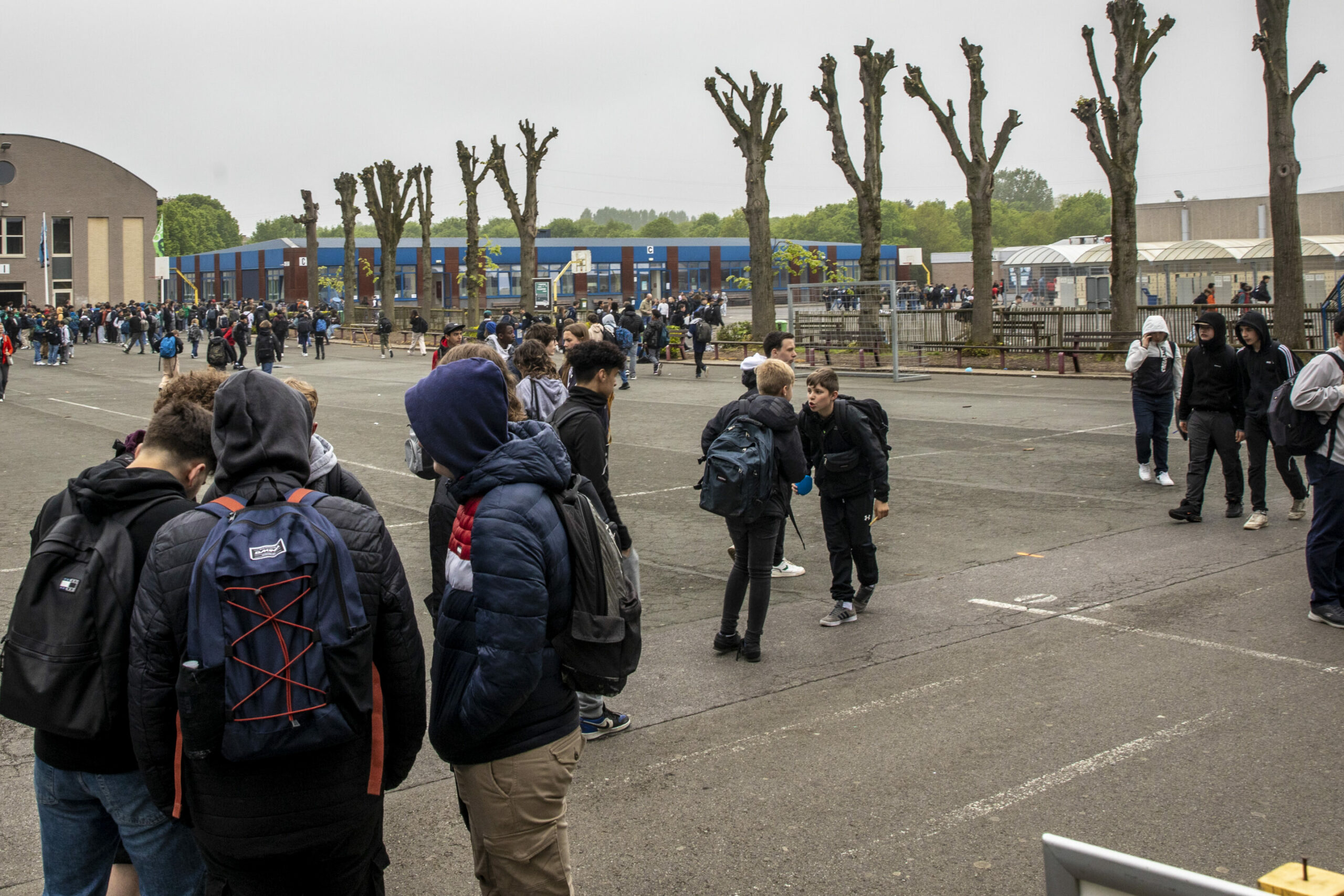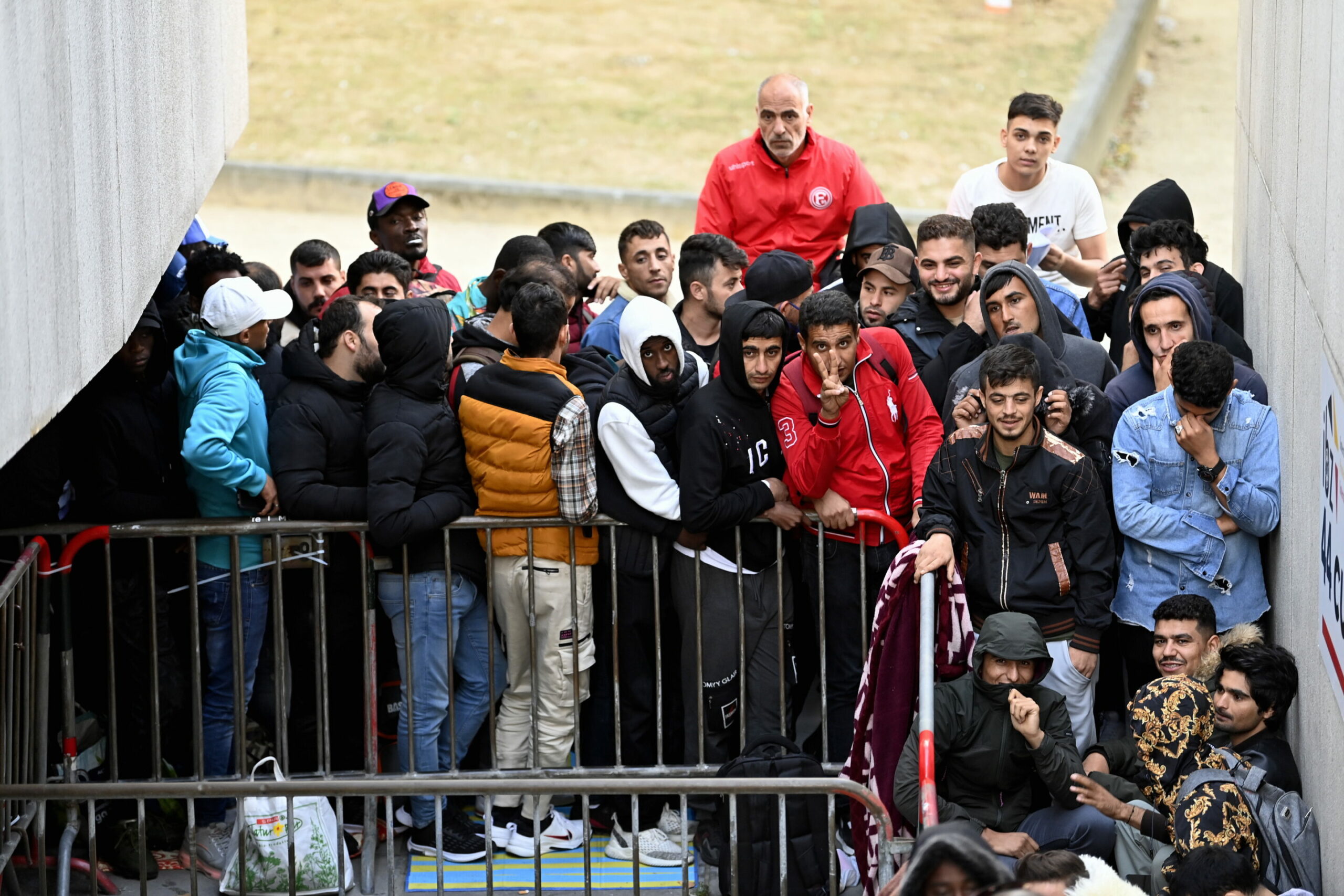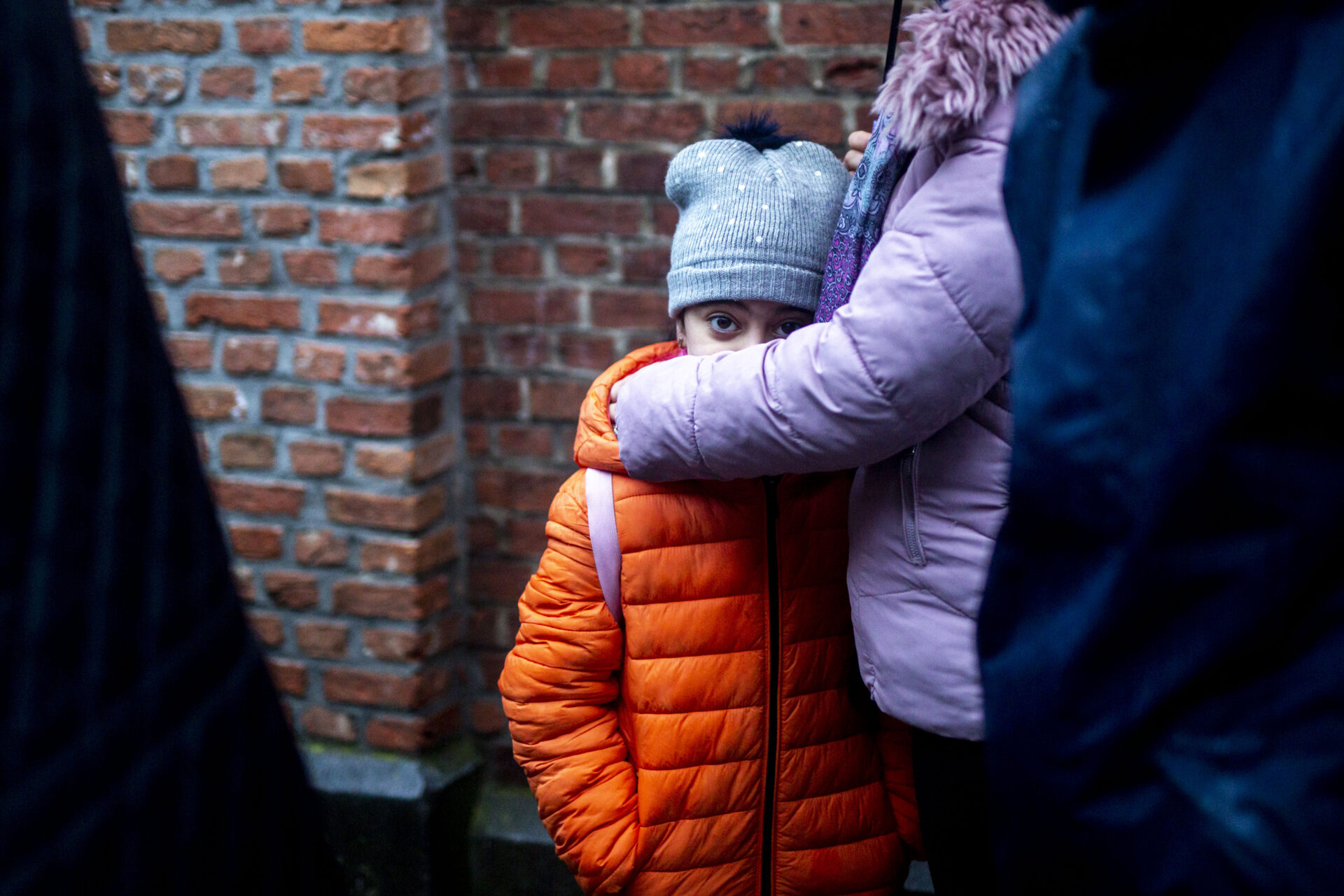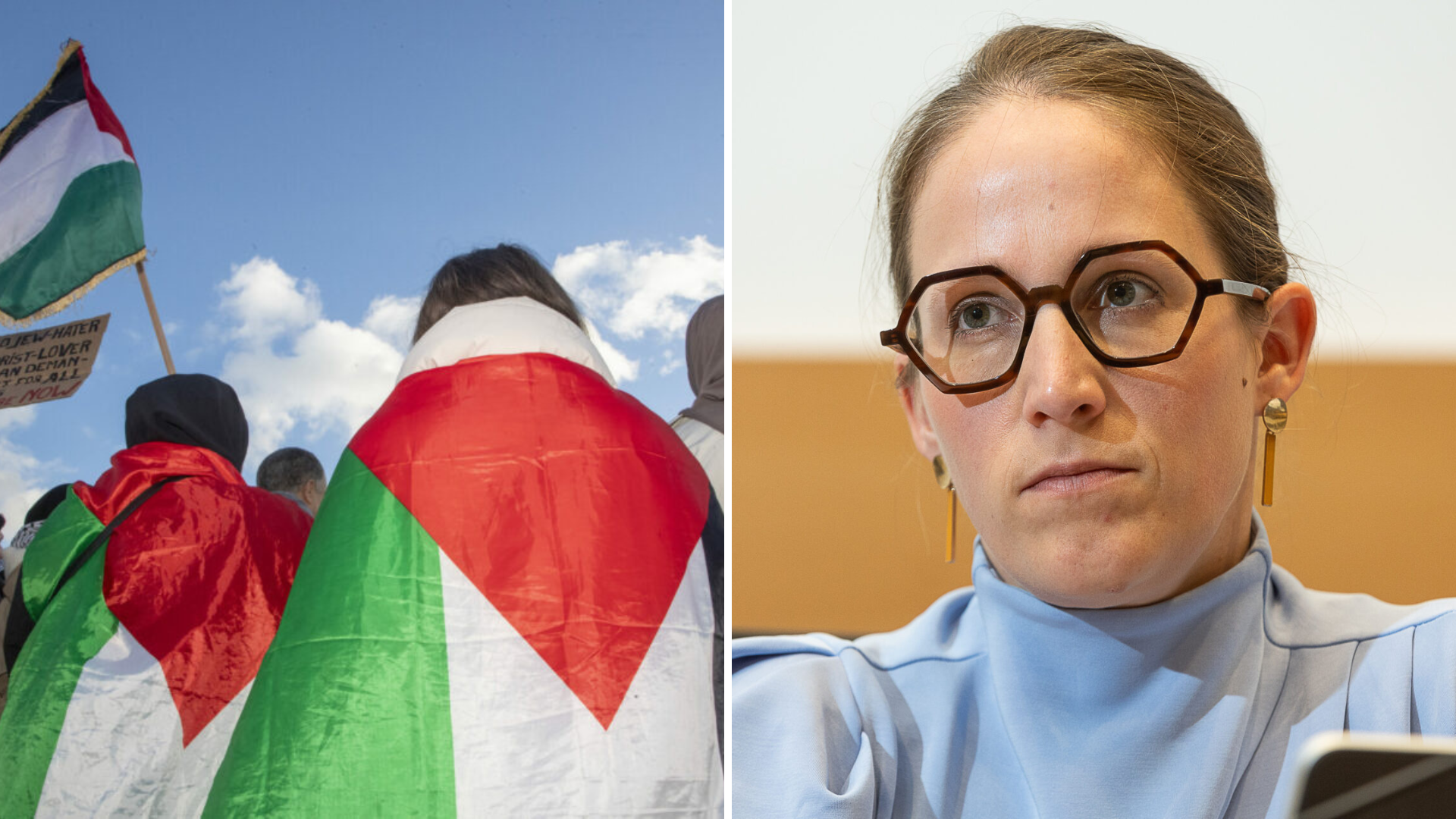Several Flemish municipalities continue to revoke the Belgian nationality of children born to Palestinian parents – despite reprimands from the Federal Ombudsman in February. Given the ongoing destruction of Gaza, the poor timing of the decision is leaving affected families in a state of desperation. The Brussels Times spoke to one of them.
Mahmoud*, Salma* and their two young children arrived in Belgium in 2021, travelling from Gaza through Egypt, Greece and Italy in search of a safer life. When their third child Khaled* was born in Flanders the same year, they were able to claim residency based on family reunification. A child born in Belgium who would otherwise be stateless is automatically granted Belgian nationality under Article 10 of the Nationality Code, and since Palestine is a perennially unstable territory, returning to obtain documentation is virtually impossible. In addition, the country has no official embassy in Belgium that can issue passports or equivalent ID.
Once asylum was granted, the family was able to start afresh after a perilous journey that included sleeping rough in Greece and Italy. They moved into social housing in Limburg, Mahmoud found work and started Dutch language classes, and the children started attending school.
However, Khaled was one of an unknown number of Palestinian children whose Belgian nationality was revoked, an illegal process that began in August and accelerated in October. Mahmoud and his son were summoned to their municipality on 18 October, where the child was stripped of his papers. The family's grounds for a residence permit have therefore fallen through.
"We were finally happy," Salma, who is pregnant, told The Brussels Times. "We had finally settled in, we were living in social housing and the kids were going to school. Now everything has changed: no work, no language school, no social help."

An N-VA proposal to make Flemish the only language permitted in schools drew harsh criticism in January. Credit: Belga / Hatim Kaghat
The family is not obliged to leave Belgium but no longer qualifies for social housing. Without permanent residency, attending language class and finding employment is significantly more difficult for Mahmoud. They are entitled to asylum reception agency Fedasil's 'Three Bs': bread, bath and board, but apart from this they are depending on the kindness of friends and family to get by as social benefits such as a living wage have disappeared too.
'Illegal practice'
First reported on by l'Echo, Secretary of State for Migration Nicole de Moor (CD&V) says the systematic revocation of Belgian nationality of children like Khaled has nothing to do with the violent destruction of Gaza in recent months. The goal, according to her, is to "fight against practices where people who have no right to do so try to acquire Belgian nationality."
In February, Federal Ombudsman Jérôme Aass called on the Immigration Office to "cease this illegal practice immediately," as the ruling contradicts Article 10, which sets out to avoid the creation of stateless children by granting them Belgian nationality when they have no way to claim any other official identity.
Despite this warning, several Flemish municipalities, including where Khaled resides, have not reversed the revocation. Mahmoud and Salma have appealed the decision and have commenced a separate asylum claim for their family. Belgium had paused all claims made by Palestinians since 7 October but the way opened up again in early 2024.
Bureaucratic 'hellscape'
It is possible that the crisis is a result of fundamental mismanagement at the heart of the asylum system rather than any concerted anti-immigrant strategy.
Julien Wolsey, the President of the Association for the Right of Foreigners, was the one who first noticed something was amiss and promptly notified the Ombudsman. Speaking to The Brussels Times, he suggested that blurred lines between municipal and federal competencies allowed civil servants to make political decisions that go far beyond their remit.
"[Municipalities] haven't stopped to consider who actually has the power to revoke nationality in the first place," he explained. "I don't think civil servants quite anticipated the political consequences of their decisions."
The volunteer assisting Mahmoud and Salma with their case thinks denationalisation is more calculated than that. As Belgium's migration and asylum policy gets tougher on international protection applicants, the De Moor cabinet sees "small victories" in revoking nationality and is looking to create "push factors" that will deter more arrivals, the volunteer believes. Palestinians are the third largest group of asylum seekers in Belgium after Afghanis and Syrians.

Single male asylum seekers are the most affected by Belgium's reception crisis but families and children are at risk of homelessness too. Credit: Belga / Eric Lalmand
Whatever the root causes of their situation, Mahmoud and Salma now find themselves mired in bureaucracy, constantly sent back and forth between three municipalities: where Khaled was born, where he was granted nationality, and where the family lives now. The latter declined to comment on the case when contacted by The Brussels Times for GDPR reasons.
If there is indeed an anti-migration strategy behind denationalisation, it would amount to the Immigration Office "digging its own grave", according to a migration lawyer speaking off the record.
"All denationalisation does is take away integration opportunities, which in turn perpetuates a narrative about international protection applicants being unable to integrate," the source outlined.
'Sword of Damocles'
The legal nightmare Mahmoud and Salma are experiencing has thrown the couple into despair. They have no idea what this means for their family and are deeply concerned for the wellbeing of their children.
"We haven’t told our kids about any of this," says Mahmoud. "My daughter was so affected when we went from one bad living situation to another. How can I tell her we have to leave this house too?"
The 34-year-old has suffered psychological distress due to a difficult life in Gaza. He takes long pauses throughout the conversation, visibly struggling to recount his story.
"We are under so much pressure," he continues. "[The rest of] my family is still in Gaza, and here in Belgium, my life has been turned upside down. I don’t know whether to think about what's happening here or what's happening there."

A young asylum seeker waiting at a Fedasil reception centre in Brussels. Credit: Belga
There is nothing to say orders will not extend to Palestinian minors up to the age of 18 along with Palestinian babies being born in Belgium every day, Wolsey points out. "And all of them now have a sword of Damocles hanging over their heads," he explains.
"This is an extremely vulnerable position to be in, and goes beyond the cases we are currently seeing, which only concern families who arrived a short while ago."
Several municipalities have reversed denationalisation decisions already, and it is hoped that more will follow. But Mahmoud is keenly aware of the uncertainty that faces his family no matter the short-term outcome. "Even if I get my son’s papers back, I will have to live with the fear that they will do this again for no reason."
*Names have been changed to protect the family's privacy.

